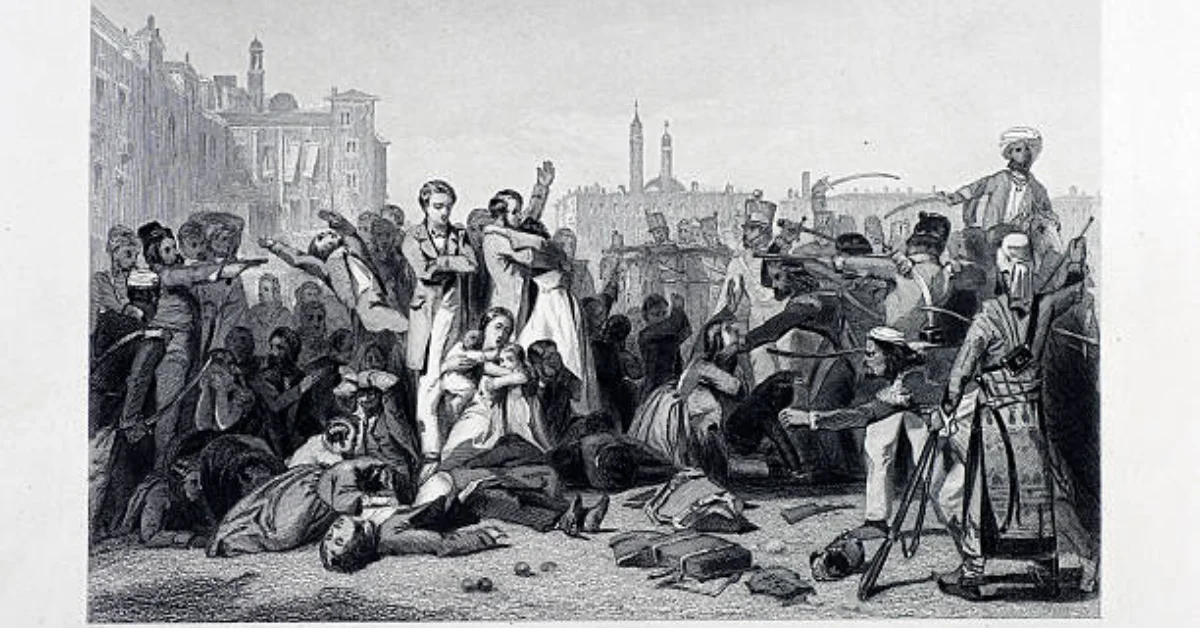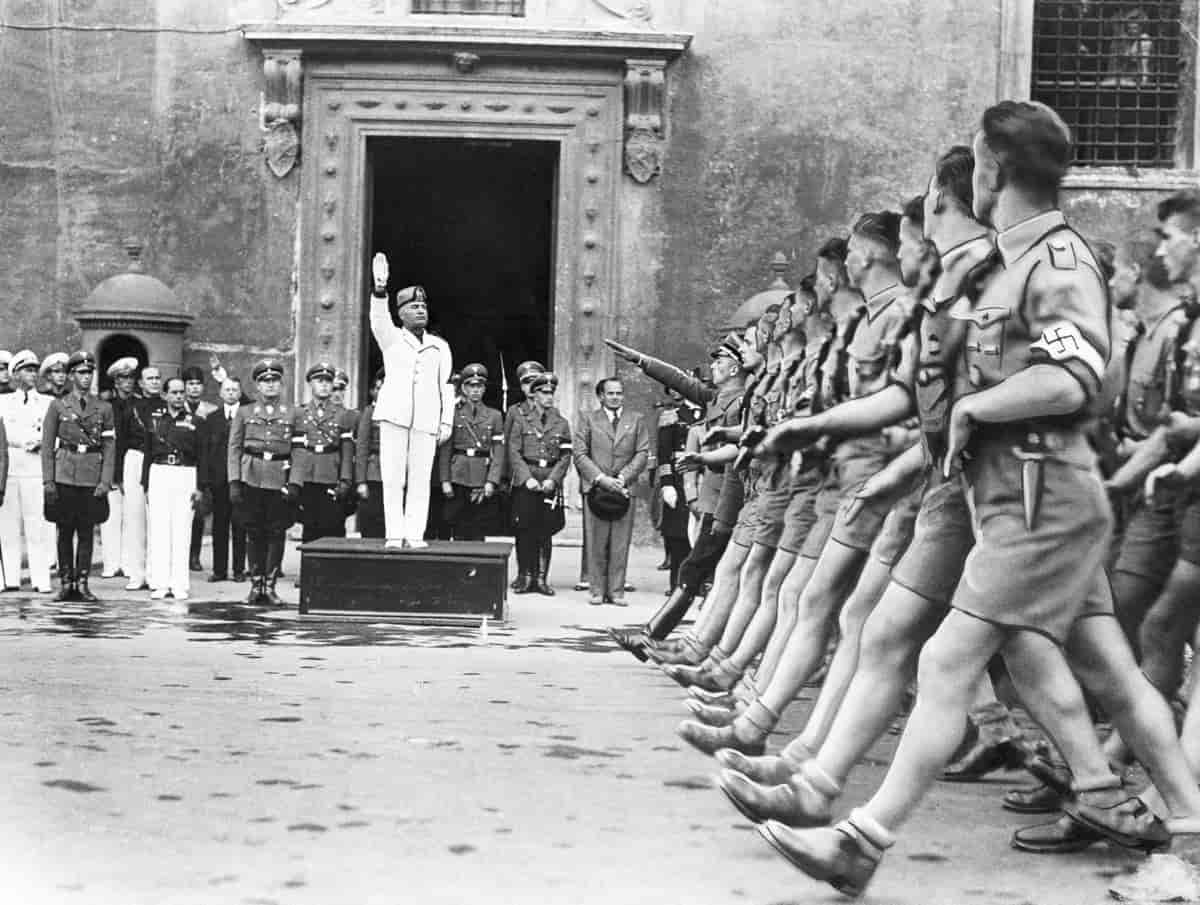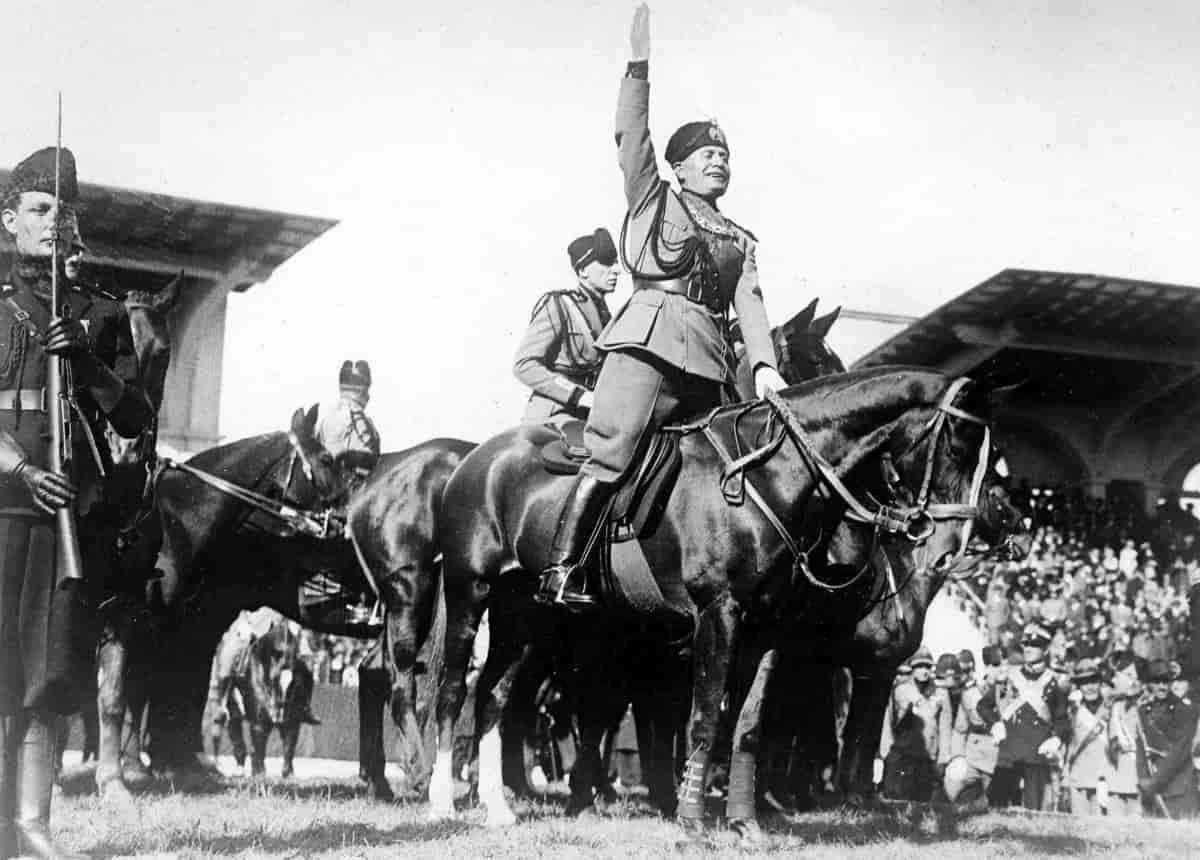Data and documentation were applied to focus on this piece of work in order to examine the word fascisterne in the complete history, ideology, related to it and contemporary. It seeks to offer a detailed insight to the readers on what fascism is all about, who the fascists were and still are and why the fascist ideology is still relevant to the modern day politics. Ranging in history starting with fascism in 200s century Europe, to the up-to-date digital extremism, the article tries to analyze the numerous ways of fascism and its followers.
Through exploration of factors like the creation of authoritarianism, its ideologies, its humanistic persuasiveness and social reactions to it, the article would like to inform, and take action against, the menace. Having an FAQ area and a good concluding statement will make sure that the reader leaves a clear picture, an understanding and a call to duty. May it not only become a lesson in political science or history but a lesson of us all as we play our part in maintaining freedom and human dignity at all times.
Introduction
Fascisterne is the plural form of fascists in Danish, historically and ideologically the term applies to individuals and groups prominent in fascism. The term might have been coined in a particular language, but the connotations it poses are beyond borders, language and cultures. Fascism as a political ideology is the basis of some of the most turbulent moments in the world history. Since the fascist born in the Italy of Mussolini, emerged in Nazi Germany in Hitler, and appeared in similar authoritarian governments across the world who copied the strategy, fascism is not just in the past, but an ongoing cautionary tale about the harm extreme nationalism, muzzling of opposition, and dictatorial rule have wrought on peoples.
Contemporarily, the term fascisterne is not historical. Politicians use it extensively, people use it in demonstrations, or it may be abused in social media. The term under consideration needs to be understood in terms of its historicity, ideology, and even sociopolitics, and it is essential to understand who wants to be a meaningful participant in the discussion of the issues regarding governance, civil rights, and democracy. This growing popularity of populist movements in various countries of the world, in many respects, has made it possible to renew the issue of fascist revival and, accordingly, the topic of studying the issue of fascisterne has become topical.
In this blog article, we are going to take a look at the beginning, development, ideologies, manifestation, and legacy of fascism. We are going to mention as well its modern implications, and the way societies are reacting to the re-emergence of authoritarian trends. This analysis is not academic but a plea towards awareness, alertness and resistance to oppressive ideologies which pose a threat to freedom as well as to pluralism.
The Origins of Fascism and the Rise of Fascisterne
This political ideology called Fascism emerged during the first quarter of the 20th century giving birth to the ruins of World War. Italy was completely devastated due to this war and it was smitten by a wave of economic woes in the country seeing Benito Mussolini found a group called Fasci Italiani di Combattimento in 1919. Even the very term of its name, fasci, is rooted in the idea of unity as a source of strength, since the Latin term, which it is based on, fasces, was initially a group of rods, the symbol of the Roman magistrates.
Very quickly, the movement led by Mussolini transformed into the National Fascist Party, and Mussolini came to power in 1922 as a result of a mix of propaganda, political handlings, and violence. Italy living under Mussolini became the first state in the world that inspired others to follow the blueprint idea of fascism.
The word fascisterne came to cover people who had sympathies with these ideologies, those who are in a similar way critical of ultra-nationalism, militarism, anti-democracy. Hitler Nazi Party in Germany adopted most of the features of the Italian fascism except its racial aspect, which was more toxic that resulted to the holocaust. In Spain, under Francisco Franco, and Portugal, under Antnio de Oliveira Salazar, were also various flavors of fascist regimes. In both instances, fascisterne became a metonym referring to those who were ready to forego the civil liberties in the favor of stability, tradition, and nationalism.
Core Ideological Tenets of Fascisterne
Fascism cannot be easily defined since it usually incorporates certain elements of left and right viewpoints and still at the end of it all it propagates authoritarianism. However, there are a number of similar ideological aspects that can be described as being fascisterne. The doctrine of dominance of the nation or race is one of the main teachings. According to fascists, there exists one supreme culture at all costs. The result is virulent nationalism which hates foreigners, minorities, and opponents. Fascism does not tolerate the pluralism and considers diversity as a threat to national cohesiveness.
The other characteristic of fascism is the use of authoritarian leadership. Fascisterne group themselves behind a single, charismatic leader that will present himself as the voice of the people. Such a leader tends to exert control and keep order with the help of propaganda and censorship and position himself/ herself as the deliverer of a state out of chaos or decay. They are also defined by the aspects of militarism and violence. Fascist governments turn war into a god and believe that war helps to revive the country. They tend to form paramilitary groups to intimidate their dissenters and stifle obedience.
Fascism is also characterized by anti-intellectualism and contempt of democratic institutions. Fascists do not think that a rational discussion and parliament are something strong. As opposed to this, they appeal to action, emotion and instinct as opposed to reasoned discourse.
Fascisterne in Denmark: A Historical Perspective
Although Denmark did not encompass a full scale fascist state as operated in Italy or Germany, it was not left out of fascist influences. During World War II the far-right political movements emerged in Denmark, along the lines of fascist ideologies. An example was the National Socialist Workers Party of Denmark (DNSAP) that was a Nazi influenced group, which attempted to create political influence in the nation. The Nazi occupation of Denmark In the German occupation of Denmark (19401945) a small group of Danes cooperated with the Nazis and assisted fascist objectives.
Within the Danish context, it can be anonymous persons as well as groups of these that can be labeled as fascisterne. It should be mentioned, though, that the larger Danish population was opposed to the Nazi influence, and Denmark resistance movement made it to one of the most productive in the Nazi-occupied Europe. Fascisterne were marginalised after the war; several would be convicted as collaborators. Nevertheless, the word continued to be used in Danish politics, being regularly applied to extremists or authoritarian tendencies.
The Modern Usage of Fascisterne
Fascisterne is today a loaded political term as well as a label used historically. Today in Denmark and even throughout the world, individuals refer to it when they need to refer to individuals or a group of people whose authoritarian behavior or who advocate ultra-nationalistic views. These have raised disagreement of whether it is suitable to use the term. It is claimed that it is unacceptable to be described as a fascisterne and, by so doing, trivializes the meaning of the word and puts down the memory of those who died out of fascists oppression.
There are those who insist an alarm should be raised over early indications of fascism phobia, populist demagoguery, and oppression of opposition, before they erupt to create a greater threat. Whatever the stance of any person might be in this heated debate, it is apparent that the ghost of fascism could not leave contemporary cultures alone. Polarization of politics, the fear of immigrants, lack of enthusiasm to practice democracy has given some real estate to delve into ideas that resonated during the historic fascisterne.
Fascisterne and Internet Age
Digital fascism is one of the most terrifying trends that have occurred over the past couple of years. Internet has given fascisterne old and new, a strong platform to propagate their philosophy. Fascist organizations have also recruited, organized and radicalized people all over the world through encrypted message applications, social media and online forums. The anonymous condition of the internet has enabled fascist supporters to easily use the platform to publish hate speech, conspiracy theories and disinformation with impunity that can easily be dealt with in real life.
The algorithms that prioritize sensation mean that they algorithmically privilege extremist messages and get better visibility with vulnerable or disillusioned people. Some of the efforts to address digital fascism have entailed deplatforming of suspected extremists, deployment of hate speech regulation, as well as digital literacy. Nevertheless, the fight does not finish, since fascisterne regularly change new technologies, approaches.
Countering Fascisterne: Education and Resistance
The most solid safeguard of the resurgence of fascisterne is the education and active democratic citizenship of the people. Resilience in the face of authoritarian ideologies cannot be constructed without education. Learning the history of fascism and the danger it causes, the society will be able to inoculate itself against its tempting call. Democracy systems should also be enforced. This entails the encouragement of the freedom of press, minority rights as well as independence of the judiciary.
The spread of fascism can be countered by vigilant media, civil society organizations and grassroots movements. In addition to that, people should be ready to speak up. The lack of protest when it comes to justice, promotes fascism. Whether it is fighting the hatred of speech online or in real life, declining censorship and supporting marginalized groups, these are all manifestations of civic courage that fights the agenda of fascisterne.
The Psychological Appeal of Fascism and Why People Become Fascisterne
Fascism is usually attractive when there is some crisis. People can be motivated by the social unruliness, political and economic instability which causes them to find order and security. Fascism gives easy solutions to difficult issues. It gives a sense of belonging and identity and in many ways it achieves that by generating enemies, real or imagined, whom to blame. Fascism gets such a psychological allure, which makes it possible even in democratic societies to develop certain success.
Individuals who feel left out or neglected by the mainstream politics tend to join extremist beliefs. This dynamic is key to coming up with effective interventions. The root causes of radicalization can be dealt with by providing support in terms of mental health issues, economic reforms, and involving governance. To ensure that others do not become fascisterne, it takes not denunciation, but understanding, possibility and participation.
Frequently Asked Questions
what is a fascisterne?
The Danish plural of fascists, people who favour or are aligned with fascists ideologies or regimes.
Did Denmark have fascists during World War 2?
Concurring to this view were existent fascist sympathizers and collaborators in Denmark, such as members of the DNSAP. Most Danes however did not accept the fascist ideology and occupation.
Can modern day politicians be referred to as fascisterne?
This will be situationally specific. They may be authoritarian in some aspects though we should be cautious in this use of the word when discussing certain people since its meaning carries all the historical dimensions.
The question is why people continue to believe in fascist concept even nowadays?
Fascism has the potential to spring up whenever there is social and economic upheaval as people find easy solutions and national character in a leader and can be driven by feeling disenfranchised.
What can societies do to fight a recurrence of fascism?
This can be done through education, good democratic institutions, mobilizing the community and through ensuring inclusive and fair policies which take into consideration the interests of every citizen.
Conclusion
The learning of fascisterne is not merely about comprehending a horrible precedent of history- it is more like identifying the trends of a tragedy that can be repeated as long as people are not careful about it. What makes fascism popular is that it preaches on the basis of using fear, division and suffering. Its threat runs in its intolerance, violence and the degradation of human dignity. The effect of uncontrolled fascism can not be hypothetical, it is in practice, in the lost of lives, in the denial of human rights and freedoms and in the dismantled society due to the dictator rules.
At a time when polarized views and a complicated world guide our lives, more than ever, we need to remember the teachings of the past. The term fascisterne is not one that should be tossed around casually, nor should one even turn a deaf ear to the warning when the symptoms start over again. We should keep on teaching, protesting, and speaking up against any kind of authoritarianism no matter where it emerges in the government buildings, on online platforms, or in street movements. By so doing, we commemorate the victims of fascism and establish a world where freedom, equality and justice reigns.
Coming out against fascism is not a task of a historian or politician only, it is the duty of anyone believing in democratic values and human rights. May not the name of fascisterne be as in the past a lesson to us, but never an actual present fact. May it remind us that inaction can be just as oppressive as action, that somewhere we must find the courage to act upon those moments when it is within our grasp to declare the lie of our equality and to call it for what it is, while acting against inaction. History revealed to us what fascism is capable of. Whether we learn something depends on the future.

